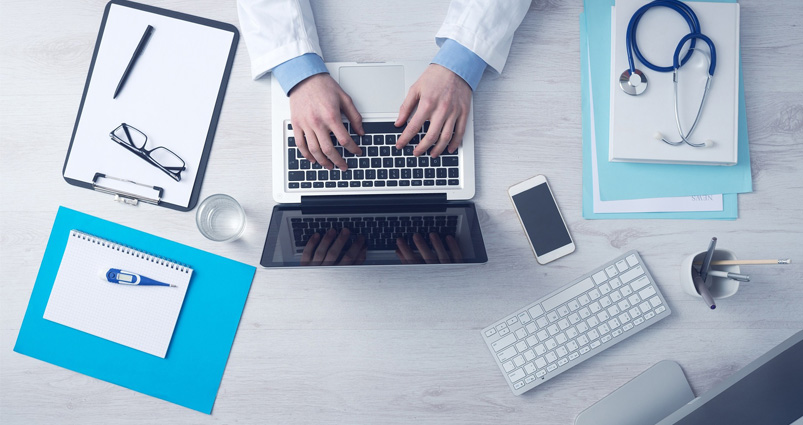
As previously stated, the disruptive influence of AI and machine learning is perhaps best felt in the healthcare domain, specifically in the exciting shift from curing to ongoing caring.
Learning computers can, after all, be expected to compare symptoms and genetic details against millions of possible diagnoses in a fraction of the time it would take human doctors, not to mention process massive volumes of information no human could possible manage.
In this and the next blog post, we’ll examine a few representative cases of how this technology is being put to beneficial use in this particular segment.
Improving clinical trial safety and efficacy
Intel has its sights set on helping to improve clinical trials, which often face challenges that drive up R&D costs and slow the delivery of promising treatments. To achieve this goal, it has introduced its Pharma Analytics Platform, an edge-to-cloud artificial intelligence (AI) solution that employs remote monitoring to capture continuous clinical data from wearable device sensors.
The platform critically applies machine learning to develop objective measures for the assessment of symptoms and quantification of therapy impact. Intel’s solution can allegedly enable pharma companies to gather rich sensory data, such as skin temperature and activity levels, subject this data to sophisticated analytics methods to assess patient symptoms and identify subtle patterns, and gain real-time awareness of protocol adherence. Intel ultimately claims to supplement manually collected subjective data with device-aggregated objective data to help reduce clinical trial operational costs, increase patient adherence and improve evidence quality – all contributing to accelerated drug and treatment development.
Empowering heart patients with “the ultimate wearable”
People with heart conditions can also benefit from the use of AI and machine learning in healthcare. Consider for example a pacemaker – perhaps “the ultimate wearable” – developed by Boston Scientific to leverage real-time patient-generated data, so as to improve treatments and support healthier lives.
The Wi-Fi-enabled device tracks every single heartbeat, with its AI checking for any abnormal rhythm, and even monitors its own voltage settings and battery life. The pacemaker helps patients feel safe and in control of their lives by constantly reporting whether or not their heartbeat is in the safe zone, and even enables all this data to be transmitted to their doctors over Wi-Fi, too.
This represents a truly transformational time for healthcare, the future of which will be marked by such disruptive trends as patient-generated data, patient-empowering IoMT (the Internet of Medical Things) sensors and wearables, smart home applications and mobile access to doctor care.
Mitigating neurological conditions
Another healthcare area where machine learning is proving its value is epilepsy care. Epilepsy is among the most severe and erratic of neurological disorders. A team of doctors and neurologists aiming to help cope with the condition has developed myCareCentric Epilepsy, an engineering solution combining the Microsoft Band wristband and a mobile app with machine learning, and care record and data analysis tools.
The solution tracks and stores integrated patient data – either logged manually by patients themselves, or detected by the Microsoft Band in the process of monitoring motion and exercise habits, temperature, heart rate, galvanic skin response and sleep patterns. It delivers this information to medical staff, keeping doctors constantly informed on patient health, and notifying them to have epilepsy specialists on standby well in advance, in case of hospitalization need.
A wearable speech recognition device developed by a team of MIT researchers similarly helps keep an eye on people suffering from speech disorders. Rather than settle for analyzing a patient’s voice for half an hour or less during a therapy session, this device enables doctors to improve treatment efficacy with access to a full 24 hours of real-time data per day. Machine learning-driven speech recognition technology is also being tapped in additional healthcare applications, such as early warning and diagnosis of diseases affecting cognitive functions, in products designed to monitor speech for early signs of a range of neurological conditions, including Parkinson’s, Dementia and Alzheimer’s.
In the next post, we’ll look at even more fascinating uses of AI and machine learning in healthcare.



